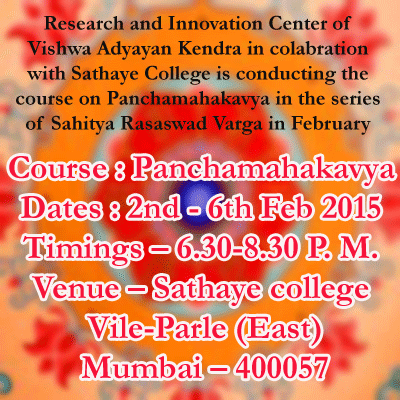REPORT OF UNIVERSAL BROTHERHOOD DAY 2007
Shri Yashwant Sinha, M.P., & former Foreign Minister. Finance Minister & Defence Minister. spoke on the topic "1-2-3, Nuclear India - Towards new horizons?" (Complete speech below)
Shri Balakrishnan, Political Editor, Times of India, Mumbai was the Guest of Honour on the occasion.
Shri Satish Agrawal, eminent industrialist, presided over the programme.
Dr. B. B. Singh, an authority on IPR and International Agreements was invited specially for the Q / A session.
The programme commenced with welcome address and introduction of dignitaries by the President of VAK, Dr. Satish Modh.
There was useful interaction between the audience and speakers in the Q / A session. The audience consisted of professionals from various streams and about 20 students from the IIT. Shri Sanjay Kelapure and Shri Sandeep Singh had taken lead initiative for the success of the programme and had invited very many new faces to the program.
Shri Ashok Motwani delivered the vote of thanks.
The programme concluded with delicious dinner.
The programme helped the audience get a new perspective about the 1-2-3 Agreement and the Nuclear Deal with USA.
Extracts from the speech of Shri Yashwant Sinha.
The Henry J. Hyde United States-India Peaceful Atomic Energy Cooperation Act is now law. With its passage history of sorts has been created. India now has a credible chance to legally access civilian nuclear technology while keeping its nuclear weapons program. No country outside the NPT can say so.
Critics in India have called this a complete sellout of our foreign policy and our nuclear programs both civilian and military. Supporters on the other hand, call the Henry Hyde Act a clear and uninhibited victory. As in most such polarized arguments, the truth is somewhere in between. India gained something "nuclear cooperation" while loosing on other fronts.
To truly understand the implications of the Act, it must be analyzed on two fronts nuclear and foreign policy. For India, the original intent of the Indo-US Nuclear Deal signed in March 2006, was two fold. On the nuclear front, India hoped to access civilian nuclear technology and fuel to expand its domestic program. On the foreign policy front, it hoped to create a India-specific niche for itself, justifying its nuclear non-proliferation and military credentials.
In that two-faced analysis the real losses for India are not the tangible ones, such as loss of control over the civilian program. Rather, it is the loss of power India will face in future foreign policy negotiations. And that loss has less to do with the original agreement and more to do with how India has handled the passage of the subsequent Henry Hyde Act through the US Congress.
The Henry Hyde Act is only one of many steps towards India's recognition as a nuclear state, entitled to full civilian cooperation with the Nuclear Suppliers Group. However, it is an important step because it sets an upper limit to what the US can offer India. And there is no reason to believe that India can extract further concessions from other NSG members, many of whom are less enthusiastic of this initiative.
On the nuclear front the Act offers India access to technology for new, bigger, and better reactors, as well as uranium for those reactors something we are short of domestically. On the foreign policy front the Act shows that India can now create a space for itself and eventually be recognized as a nuclear state.
Invitation|| Short Biography of Shri Yashwanth Sinha|| Report||Image Gallery)
